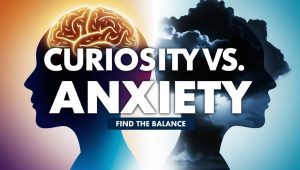Introduction
Curiosity is a powerful human trait that fuels learning, discovery, and innovation. However, not everyone exhibits curiosity in the same way. While some people are endlessly inquisitive, others may seem indifferent to exploring the unknown. What causes these differences? In this post, we’ll delve into the psychological roots of curiosity, exploring factors like personality, upbringing, and environment that influence how curious we are.
The Science of Curiosity
Curiosity stems from the brain’s reward system. When we learn something new, the brain releases dopamine, a feel-good chemical that motivates us to seek further knowledge. This neurological response, however, can vary from person to person, influenced by genetics, brain chemistry, and life experiences.
For example, a study from the University of California found that individuals with a naturally higher dopamine release were more likely to pursue novel experiences and information. This suggests that curiosity might be partially hardwired into our biology.
Personality and Curiosity
Personality plays a significant role in how curious someone is. Psychologists often link curiosity to the “openness to experience” trait in the Big Five personality model. People high in this trait tend to enjoy trying new things, exploring ideas, and embracing creativity.
Also check: How the Big Five Personality Traits Influence Success in Life
In contrast, individuals who score lower on openness may prioritize routine and familiarity over exploration. It’s not that they lack curiosity entirely; they may express it differently, focusing on narrow interests rather than broad exploration.
The Role of Upbringing
Childhood experiences significantly shape how curiosity develops. Parents and educators who encourage questioning, provide stimulating environments, and allow for free exploration often nurture a child’s natural inquisitiveness. Conversely, overly strict or dismissive environments can stifle curiosity, leading to a more cautious or disengaged approach to learning.
Consider a child encouraged to ask “why” about the world around them. This support not only fosters curiosity but also builds confidence in exploring new ideas.
Cultural Influences on Curiosity
Cultural norms also impact curiosity. In individualistic cultures, curiosity is often celebrated as a driver of personal growth and achievement. In collectivist societies, curiosity may be guided by how it benefits the group, leading to different expressions of inquisitiveness.
For instance, a person from a collectivist culture might focus their curiosity on family history or community traditions, while someone in an individualistic society might explore personal hobbies or career advancement.
Also check:Can Personality Change Over Time? The Science Behind Transformation
Can Curiosity Be Cultivated?
The good news is that curiosity is not fixed; it can be nurtured at any age. Strategies like setting aside time for exploration, reading widely, or simply asking more questions can help increase curiosity. Mindfulness practices, which encourage awareness and openness to new experiences, are also effective tools for cultivating curiosity.
Conclusion
Curiosity is a dynamic trait shaped by biology, personality, upbringing, and culture. Understanding what influences our levels of curiosity can help us nurture this valuable quality in ourselves and others. Whether you’re naturally inquisitive or looking to cultivate more curiosity, embracing a mindset of exploration can lead to growth, fulfillment, and a deeper connection to the world around you.









